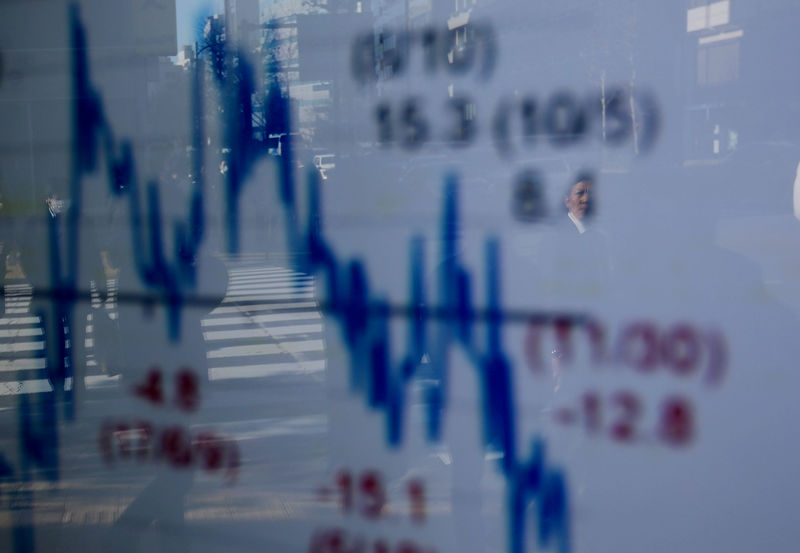By Tommy Wilkes
LONDON (Reuters) - European stocks fell on Monday as worries about a Chinese economic slowdown and the U.S.-China trade war outweighed Friday's strong U.S. jobs data, in a quiet start to trading before several big events later in the week.
The Federal Reserve meets on Wednesday and new European Central Bank chief Christine Lagarde holds her first policy meeting on Thursday, which will also see a parliamentary election in Britain, with the results due on Friday.
However, at the forefront of most investors' minds is an impending Dec. 15 deadline for the United States to impose a new round of tariffs on China.
Top White House economic adviser Larry Kudlow said on Friday that the deadline was still in place to impose a new round of tariffs on Chinese consumer goods, but he also said President Donald Trump likes where trade talks with China are going.
"If we see Donald Trump decide not to delay tariffs, that would lead to a risk-off reaction in markets," said Nomura currency strategist Jordan Rochester.
"We don't expect tariffs to go into effect as the talks are ongoing but the trade talks are the main driver this week," he said, adding he did not expect any "fireworks" from the central bank meetings.
European shares slipped. The Euro STOXX 600 (STOXX) was down marginally, while the German DAX (GDAXI) dropped 0.1 percent. France's CAC 40 (FCHI) shed 0.2 percent and the FTSE 100 (FTSE) was flat.
That followed small gains in Asia, where Japan's benchmark Nikkei (N225) added 0.33 percent while MSCI's broadest index of Asia-Pacific shares outside Japan (MIAPJ0000PUS) gained 0.15 percent.
Markets have been largely working on the assumption that the planned Dec. 15 tariffs, which cover several consumer products such as cellphones and toys, will be dropped or at least postponed, given that Washington and Beijing agreed in October to work on a trade deal.
CHINESE SHIVERS
China's exports shrank for the fourth consecutive month in November, sending shivers through a market already concerned about damage being done to global demand by the trade war, but growth in imports may be a sign that Beijing's stimulus steps are helping to stoke demand.
The U.S. dollar, which bounced on Friday after data showed U.S. job growth increased in November by the most in 10 months, was down marginally against a basket of currencies (DXY) and the euro, at $1.1064 (EUR=EBS).
The strong labor market data in the United States helped power stock markets and further allay fears about a slowdown in the world's largest economy.
"This economy is still climbing and shattering the records for longevity," said Chris Rupkey, chief financial economist at MUFG Union Bank. "Right now, the clouds of recession still remain well offshore despite troubled economies elsewhere in the world and a trade war."
The dollar was also down 0.1 percent against the Japanese yen at 108.51 yen
Elsewhere in currency markets the British pound made more gains, rising to a new 7-month high of $1.3180
Government bond markets were little moved, as investors awaited the central bank meetings.
Oil prices weakened after the disappointing Chinese trade data.
Brent futures (LCOc1) were down 0.56 percent, at $64.03 per barrel after gaining about 3 percent last week on the news that OPEC and its allies would deepen output cuts.

West Texas Intermediate oil futures (CLc1) lost 0.66 percent to $58.90 a barrel, having risen about 7 percent last week on the prospects for lower production from 'OPEC+'.